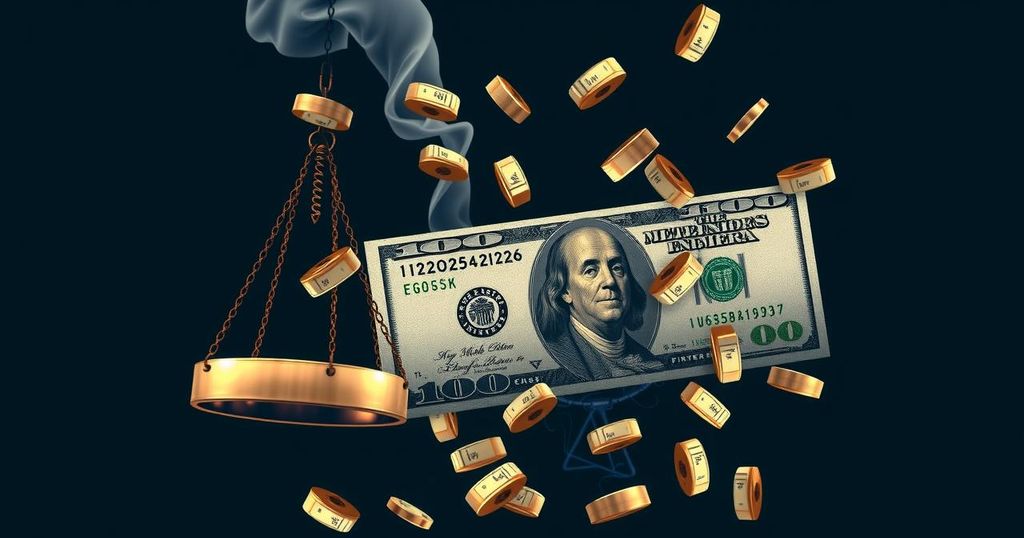Legal Experts Raise Concerns Over Elon Musk’s Planned Cash Giveaways Ahead of U.S. Election
Elon Musk’s plan to distribute $1 million daily until the U.S. election is under legal scrutiny, as experts warn it may violate laws against incentivizing voting with cash. Governor Josh Shapiro expressed concern over the potential implications of this initiative in light of federal regulations prohibiting financial inducements for voting. Musk’s America PAC has pledged significant funds to support Trump, complicating the legality of his cash giveaway initiative.
Elon Musk’s proposal to distribute $1 million daily until the upcoming U.S. election has attracted scrutiny from legal experts who warn this initiative may contravene laws against using monetary inducements to influence voting behavior. Governor Josh Shapiro of Pennsylvania expressed profound concern regarding Musk’s plan to reward registered voters in swing states for signing an online petition. During an interview on NBC’s “Meet the Press,” Shapiro underscored that while Musk has the right to express his political opinions, the substantial financial contributions to his political action committee (PAC) raise significant legal questions. Musk, through his America PAC—which he established to support former President Donald Trump—has pledged an investment of $75 million to assist Trump in his campaign against Democratic candidate Vice President Kamala Harris. Recently, at a pro-Trump event in Harrisburg, Pennsylvania, he notably presented a $1 million check to a participant, emphasizing his belief that this election is crucial for the future of both America and Western civilization. Legal scholars are profoundly concerned about Musk’s intended practice of providing monetary rewards for petition signatures, especially given that the signs must also be registered voters. Such conditions could violate existing federal laws that prohibit using cash or similar incentives to coerce or compensate individuals for casting votes or registering. According to a manual by the U.S. Department of Justice regarding election crimes, it is illegal to incentivize people financially to vote or register, which encompasses broader definitions of value, such as gifts or lottery chances. Rick Hasen, a law professor at UCLA, stated unequivocally, “Though maybe some of the other things Musk was doing were of murky legality, this one is clearly illegal.” Brendan Fischer, a campaign finance lawyer, echoed similar concerns regarding the legality of Musk’s scheme due to the registration requirement linked to the giveaway. Additionally, Michael Kang, an election law expert at Northwestern University, voiced that the closeness of the giveaway to the election complicates the argument against its legality—”It’s not quite the same as paying someone to vote, but you’re getting close enough that we worry about its legality.”
In the United States, the intersection of money and politics has been a contentious topic, especially in the context of election laws designed to prevent corruption and undue influence. Legal experts often highlight the regulations that prohibit using financial incentives to motivate voter participation. Such laws were established to safeguard the integrity of elections and ensure that voting remains a voluntary act, free from coercion. Musk’s announcement of a significant cash giveaway as part of a political strategy, particularly so close to the election, poses provocative questions about the legality of his actions and the ethical implications surrounding the financing of political campaigns.
The ethical and legal implications of Elon Musk’s proposed cash giveaways raise serious concerns among election law experts. As the United States approaches a pivotal election, the scrutiny of monetary influences in politics becomes ever more critical. Musk’s efforts to incentivize voter registration through financial rewards may constitute a violation of federal law, highlighting the delicate balance between political expression and lawful electoral conduct.
Original Source: www.aljazeera.com




Post Comment